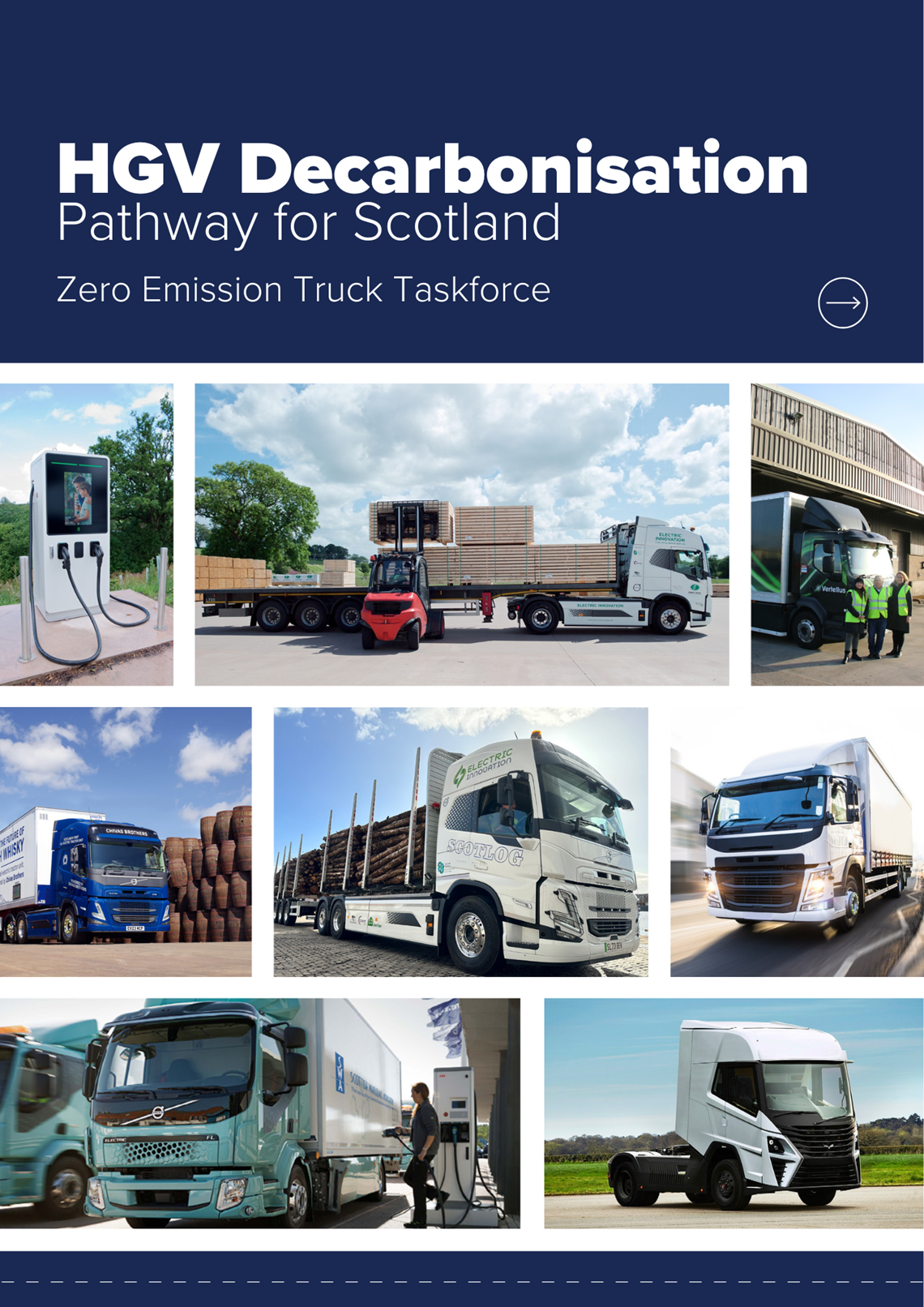SWA Co-Develops HGV Decarbonisation Pathway to Zero-Emission Fleet Transition

The Scottish Wholesale Association (SWA), together with other senior leaders from Scotland’s HGV industry, has developed a suite of actions to help the sector transition to net zero.
The HGV Decarbonisation Pathway is the result of 18 months’ work by the Zero Emission Truck Taskforce. SWA has been a member of the taskforce, chaired by Transport Scotland, along with organisations from the haulage and logistics sector; energy sector (both hydrogen and electricity); truck manufacturing; government; unions; and commercial financiers.
This pathway sets out the four key challenges posed by a move to zero emission trucks – and how to address these:
- energy infrastructure
- financial models
- confidence in technological and commercial change
- workforce skills
The SWA has ambitious plans to reach net zero by 2040, aligning with the UK target for the sector, and in time for Scotland’s net-zero target of 2045.
Colin Smith, SWA chief executive, said: “SWA is delighted to have been part of this important taskforce, supported by some of our members, and to have contributed to the HGV Decarbonisation Pathway.
“Our recent report, ‘Decarbonising the Scottish Wholesale Sector’, explores our sector’s carbon emissions and attitudes to climate action, and shows that the majority of Scope 1 emissions for Scottish wholesalers are from vehicle fleets – in fact, HGV fuel use makes up an estimated 63.7% of operational carbon emissions in the Scottish wholesale sector.
“Our report further shows that there are differences in emissions for different sizes of wholesalers, with vehicle emissions accounting for a higher proportion of emissions from SMEs.”
Mr Smith added: “It is clear to us that it is imperative to address logistics emissions to reach net zero, and that investment in infrastructure – plus confidence through help and advice to businesses – is needed to overcome the significant costs of installation of equipment and acquiring of zero-emission HGVs.
“The Pathway is an important step in industry working with the Scottish Government, its agencies and the technology developers, to identify and address what is required ensure a Just Transition, and to keep businesses on track to meet Scotland’s net zero ambitions.”
Cabinet Secretary for Transport Fiona Hyslop launched the pathway during a keynote address to the Net Zero Scotland Projects Conference in Edinburgh today.
Ms Hyslop said: “It’s a great pleasure to launch the HGV Decarbonisation Pathway for Scotland and to do so at this event reflects the extraordinary collaborative nature of this work. This partnership with road haulage, manufacturing, energy, government, union and commercial finance sectors is absolutely key to accelerating the transition towards zero emission trucks.
“Scotland’s economy – and society as a whole – rely on goods being moved with speed and efficiency, but these freight movements emit substantial greenhouse gases. We have worked collectively to understand and address the hurdles to transition.
“My thanks go to every member of the Zero Emission Truck Taskforce for their time and expertise developing and, going forward, delivering the pathway. No single sector or organisation can decarbonise without building new relationships across boundaries and I look forward to seeing what we can achieve – and inspire other sectors to achieve.”
Background
The Zero Emission Truck Taskforce was convened in May 2022. Members studied detailed background papers, including on the developing business models which draw in private investment and enable operators to avoid high initial investment costs, building a shared understanding of the challenges and opportunities across each of the sectors involved. These papers are available online.
Working groups involving both taskforce members and a wider range of interested parties then developed a small number of strategic actions addressing the challenges.
The result is an HGV Decarbonisation Pathway for Scotland which sets out the key challenges to HGV decarbonisation in Scotland and the actions that each stakeholder – including the Scottish Government – will take to address these over the next three years.
At that point sufficient progress will have been made and evidence gathered to re-convene and co-design the final set of actions required to complete the transition.
Download and read the Pathway in full below: